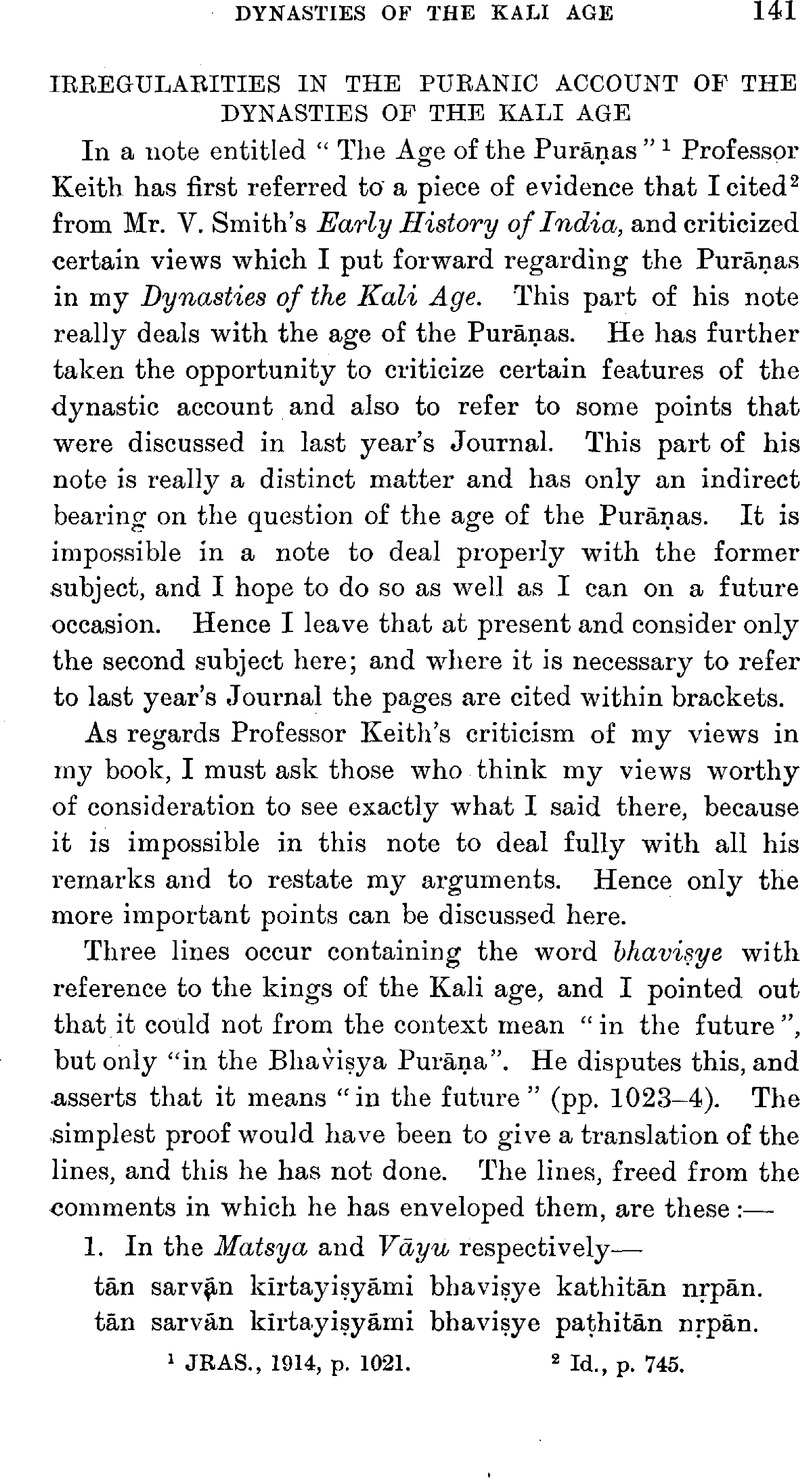No CrossRef data available.
Published online by Cambridge University Press: 15 March 2011

page 141 note 1 JRAS., 1914, p. 1021.Google Scholar
page 141 note 2 Id., p. 745.
page 142 note 1 Paṭh in the Purāṇas always implies writing, as far as I am aware.
page 142 note 2 So also compare Professor Macdonell's statement with Professor Keith's version of it (pp. 742–3).
page 143 note 1 JRAS., 1914, pp. 736, 739, 742. Here his remark, that I completely misunderstand his “statement that the Vedic texts are not books of historic purpose” (p. 1031, note), calls for notice. In the argument about Triśaṅku he shifted his ground, started a new argument, and charged me with misunderstanding (pp. 739, 741–2). Similarly here. I quoted his own words to speak for themselves. Now he says that phrase merely means “that they do not deal with history”; but this is not the same thing as that phrase. There was no misunderstanding; he is shifting his ground. This new rendering, however, does not help him, because it does not affect Professor Macdonell's plain statement (pp. 742–3), and because it is obviously absurd to base historical arguments on the silence of texts that “do not deal with history” (p. 742). He adds, “their historic context is incidental.” I am not sure what these words mean. If he means that historical facts are mentioned incidentally, I assent, so far as the facts are contemporaneous; but, where those texts speak of bygone matters, obviously they merely draw them from tradition with no guarantee of infallibility.
page 144 note 1 Great Epic of India, pp. 244–5.Google Scholar
page 144 note 2 Id., pp. 245–7.
page 145 note 1 Great Epic of India, pp. 247, 252, 260–6.Google Scholar